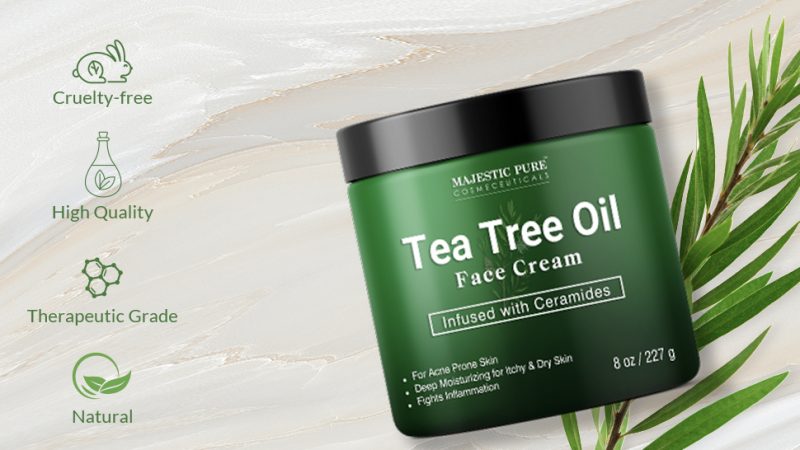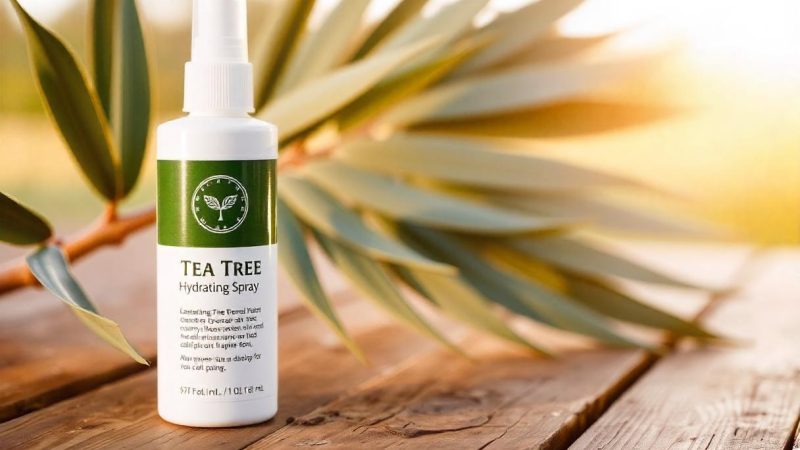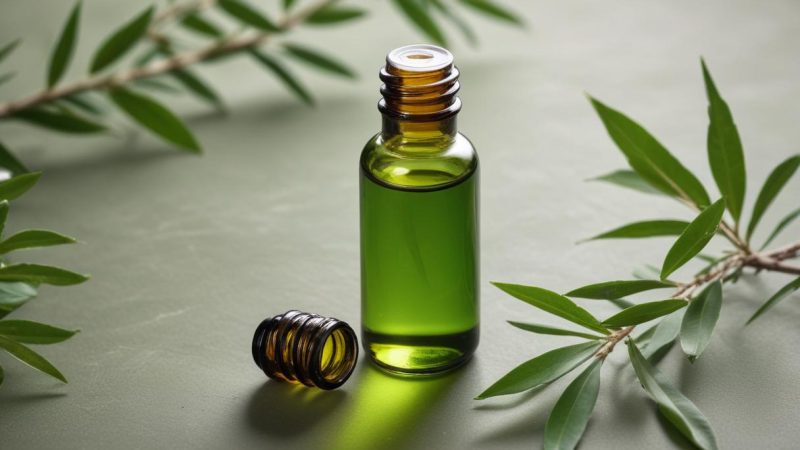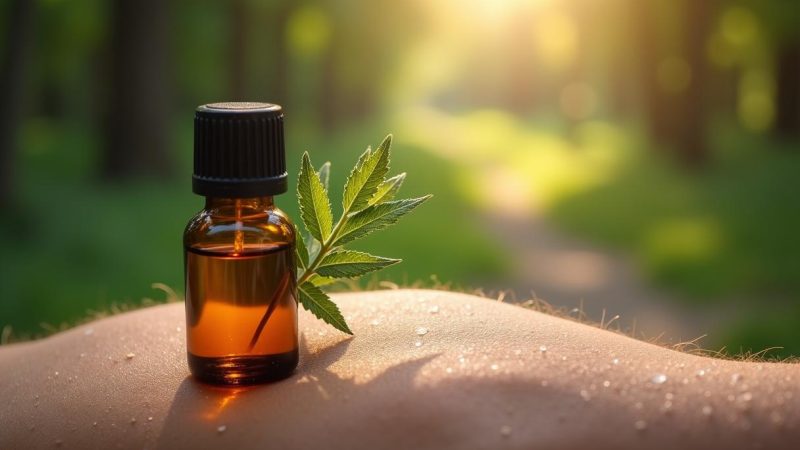Tea Tree Body Wash: Naturally Combat Skin Issues and Promote Healthier Feet and Skin
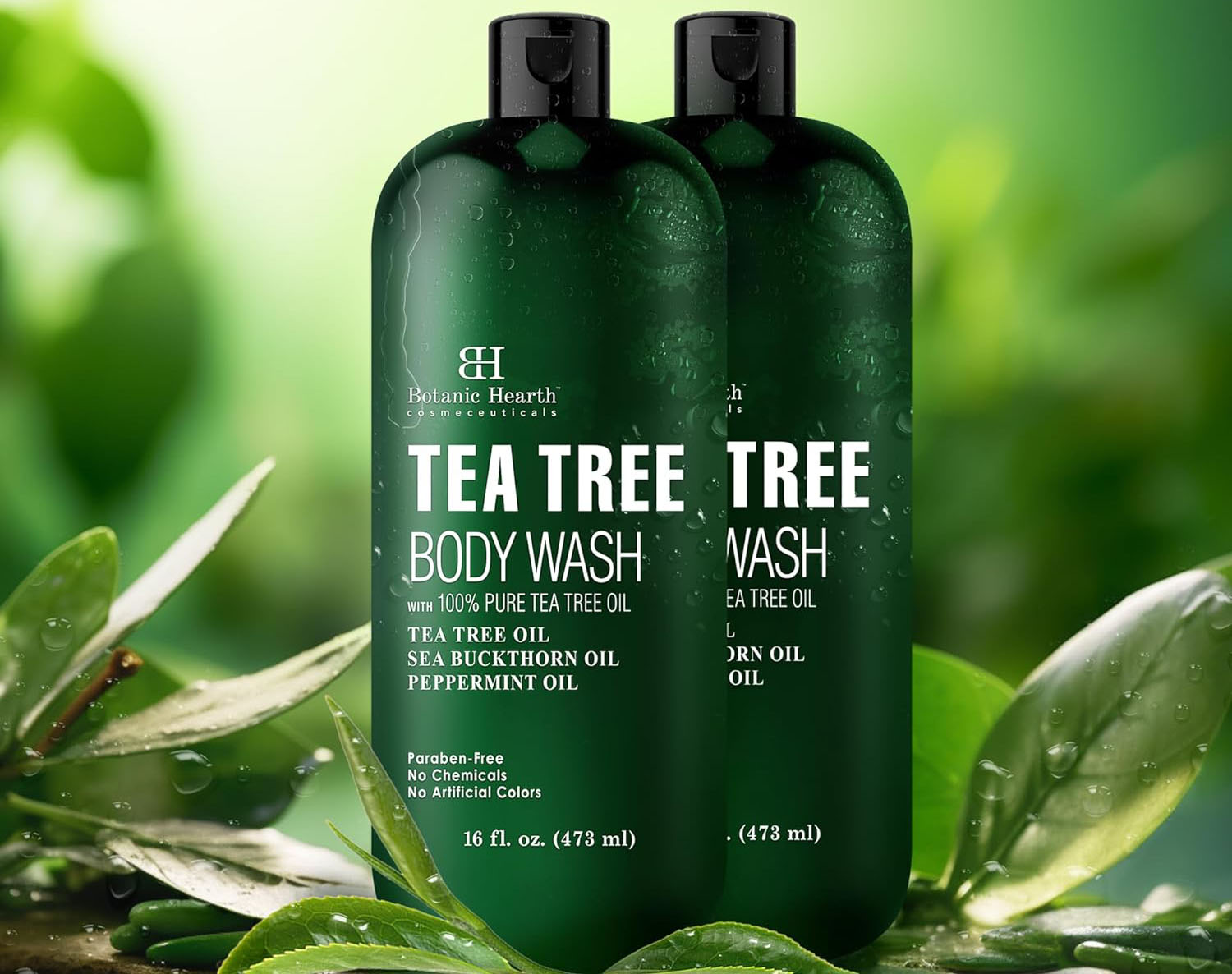
Tea tree oil, derived from the leaves of the Melaleuca alternifolia tree, is a powerful natural ingredient widely known for its antimicrobial, anti-inflammatory, and skin-soothing properties. When formulated into a body wash, tea tree oil can offer numerous benefits for maintaining skin health and combating common skin issues, including fungal infections, body acne, and dry skin. This article explores how tea tree body wash works, its key benefits, and how to use it effectively for healthier skin and feet.
Key Benefits of Tea Tree Body Wash
- Antimicrobial and Antifungal Properties
Tea tree oil has potent antimicrobial and antifungal properties, making it highly effective for preventing and treating skin infections caused by bacteria and fungi. This is particularly beneficial for individuals who suffer from athlete’s foot, toenail fungus, and other fungal infections that affect the feet and skin.
Scientific Evidence: A study published in the Journal of Applied Microbiology found that tea tree oil exhibited strong antibacterial and antifungal effects, inhibiting the growth of harmful microorganisms like Candida albicans and Staphylococcus aureus, both of which are associated with skin infections.
Source: Journal of Applied Microbiology. (2000). Antimicrobial activity of tea tree oil against pathogenic bacteria and fungi.
- Treats Body Acne
Tea tree oil is also highly effective in treating body acne, especially on areas like the back, chest, and shoulders. It helps reduce the appearance of blemishes by unclogging pores, regulating sebum production, and preventing bacterial infections that can lead to acne breakouts.
Scientific Evidence: A study in The Medical Journal of Australia demonstrated that a 5% tea tree oil solution significantly reduced acne lesions compared to a placebo, making it a viable alternative to traditional acne treatments like benzoyl peroxide.
Source: The Medical Journal of Australia. (1990). Comparative effectiveness of tea tree oil and benzoyl peroxide in the treatment of acne.
- Soothes Irritated and Inflamed Skin
Tea tree oil’s anti-inflammatory properties make it an excellent choice for soothing irritated, red, and inflamed skin. This makes tea tree body wash an ideal product for those with sensitive skin or skin conditions such as eczema and psoriasis, where inflammation is a key issue.
Scientific Evidence: Research published in Clinical Pharmacology & Therapeutics confirmed that tea tree oil’s active compounds, particularly terpinen-4-ol, effectively reduce inflammation and irritation in a variety of skin conditions.
Source: Clinical Pharmacology & Therapeutics. (2004). Anti-inflammatory effects of tea tree oil in the treatment of skin irritation.
- Promotes Healthier Feet
Athlete’s foot, cracked heels, and other foot-related issues can be mitigated with the regular use of tea tree body wash. The antifungal properties of tea tree oil can treat and prevent fungal infections, while its moisturizing effects help keep the skin on the feet soft and hydrated.
Scientific Evidence: A study in the Australasian Journal of Dermatology showed that tea tree oil effectively treated athlete’s foot (tinea pedis) by reducing symptoms like itching, scaling, and inflammation in as little as four weeks.
Source: Australasian Journal of Dermatology. (2002). Clinical evaluation of tea tree oil in the treatment of tinea pedis.
- Deodorizing and Refreshing
Tea tree oil has a refreshing, clean scent and natural deodorizing properties, making tea tree body wash an excellent choice for eliminating body odor. It helps remove bacteria responsible for causing bad odors while leaving the skin feeling clean and fresh.
Scientific Evidence: Research in Journal of Cosmetic Science found that tea tree oil effectively neutralizes odor-causing bacteria, making it a popular ingredient in natural deodorizing products.
Source: Journal of Cosmetic Science. (2009). The efficacy of tea tree oil in combating body odor through antibacterial action.
How to Use Tea Tree Body Wash for Skin and Foot Health
- For Daily Use
Tea tree body wash can be used as part of your daily hygiene routine. Its gentle formula is suitable for all skin types, including sensitive skin, and can be used on the entire body.
How to Use:
- Wet your skin in the shower or bath.
- Apply a small amount of tea tree body wash to a loofah, washcloth, or your hands.
- Gently lather it over your body, paying special attention to areas prone to acne, irritation, or infections, such as the back, chest, and feet.
- Rinse thoroughly with warm water.
- For best results, follow with a moisturizer to lock in hydration.
Scientific Evidence: The Journal of Dermatological Treatment emphasizes that consistent use of tea tree oil in body care routines can provide long-term benefits, especially for managing acne and preventing fungal infections.
Source: Journal of Dermatological Treatment. (2005). Long-term benefits of tea tree oil in daily body care routines.
- For Treating Athlete’s Foot and Fungal Infections
If you suffer from athlete’s foot, toenail fungus, or other fungal infections, you can use tea tree body wash specifically on your feet to reduce symptoms and prevent future outbreaks.
How to Use:
- Wash your feet thoroughly with warm water.
- Apply tea tree body wash directly to your feet, especially between the toes where athlete’s foot tends to develop.
- Massage the wash into your skin, focusing on areas where you experience itching or irritation.
- Rinse off and dry your feet completely, as moisture can exacerbate fungal infections.
- Use this treatment daily, and consider pairing it with a topical antifungal cream or powder for more severe cases.
Scientific Evidence: According to Phytotherapy Research, tea tree oil significantly reduces fungal colonization when used consistently as part of a foot care regimen.
Source: Phytotherapy Research. (2006). The efficacy of tea tree oil in treating fungal infections of the feet.
- For Soothing Irritated Skin
If you suffer from conditions like eczema or psoriasis, using tea tree body wash can help soothe inflamed and irritated skin. However, be cautious if you have very sensitive skin, as undiluted tea tree oil can sometimes cause irritation.
How to Use:
- Use tea tree body wash on affected areas during your shower or bath.
- Gently massage the product into your skin, avoiding any areas with open wounds or severe irritation.
- Rinse thoroughly and pat your skin dry.
- Follow up with a fragrance-free, hydrating moisturizer to help lock in moisture and prevent further irritation.
Scientific Evidence: Studies in British Journal of Dermatology support the use of tea tree oil for reducing inflammation and managing symptoms associated with eczema and psoriasis.
Source: British Journal of Dermatology. (2007). The role of tea tree oil in managing inflammation in skin conditions like eczema and psoriasis.
Safety and Precautions
- Patch Testing
Before using tea tree body wash for the first time, perform a patch test to check for any allergic reactions. Apply a small amount of the wash to a small area of skin and wait 24 hours for any signs of irritation or sensitivity.
- Avoid Eye Contact
Like most essential oils, tea tree oil can be irritating to the eyes. Avoid direct contact with your eyes when using tea tree body wash, and if contact occurs, rinse thoroughly with water.
- Dilution is Key
While tea tree oil is safe for topical use in diluted forms, undiluted tea tree oil can cause skin irritation in some individuals. Be sure to use products that contain properly diluted tea tree oil, like body washes, for safe and effective application.
Final Thoughts
Tea tree body wash is a versatile and natural solution for a variety of skin and foot issues. Its antimicrobial, anti-inflammatory, and deodorizing properties make it an excellent choice for treating body acne, soothing irritated skin, combating fungal infections, and promoting healthier feet. With regular use, tea tree body wash can improve overall skin health while providing a refreshing and cleansing experience.
Whether you are looking to treat a specific skin condition or simply enhance your daily hygiene routine, tea tree body wash is a powerful, natural option backed by science.
Sources:
- Journal of Applied Microbiology. (2000). Antimicrobial activity of tea tree oil against pathogenic bacteria and fungi.
- The Medical Journal of Australia. (1990). Comparative effectiveness of tea tree oil and benzoyl peroxide in the treatment of acne.
- Clinical Pharmacology & Therapeutics. (2004). Anti-inflammatory effects of tea tree oil in the treatment of skin irritation.
- Australasian Journal of Dermatology. (2002). Clinical evaluation of tea tree oil in the treatment of tinea pedis.
- Journal of Cosmetic Science. (2009). The efficacy of tea tree oil in combating body odor through antibacterial action.
- Phytotherapy Research. (2006). The efficacy of tea tree oil in treating fungal infections of the feet.
- British Journal of Dermatology. (2007). The role of tea tree oil in managing inflammation in skin conditions like eczema and psoriasis.


